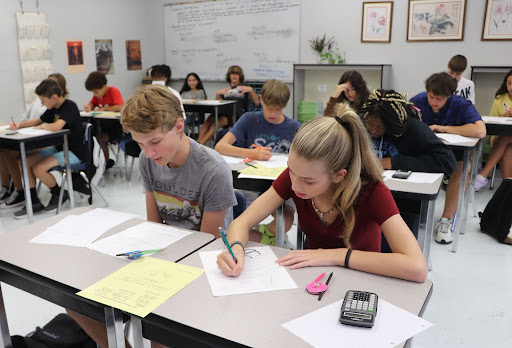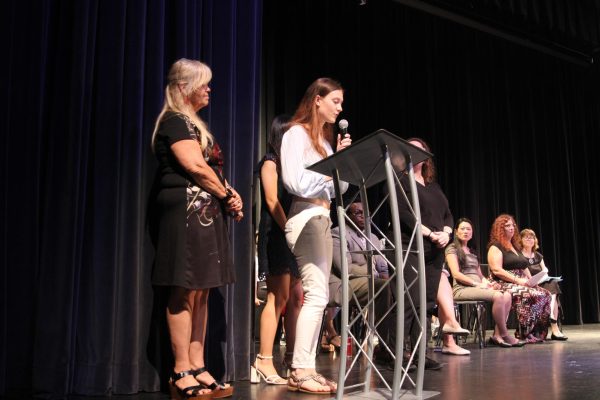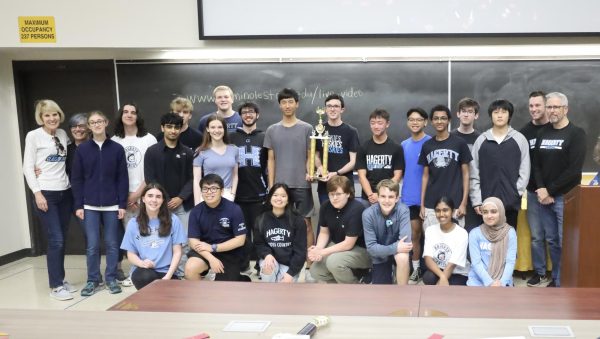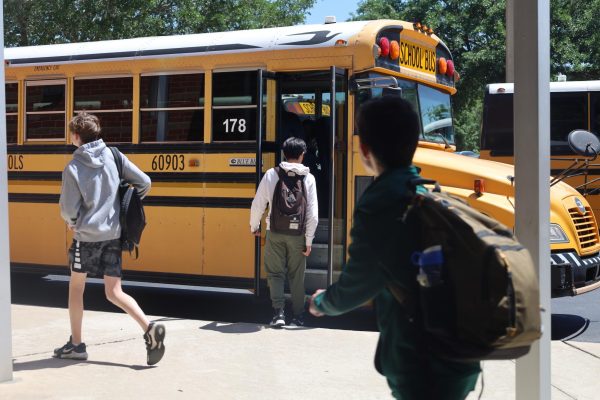New STAR and FAST exams replace FSA

photo by Joshua Krob
Freshmen Liz Timpano and Hunter Bruneel work on classwork in Geometry teacher Lois Arp’s classroom. Freshmen took their STAR test on March 8-9.
Every couple of years, the state introduces a new set of standardized tests, and much like a new Defense Against the Dark Arts teacher, students are not sure what to expect or how long these new tests will stick around.
New Standardized Test for the Assessment of Reading, also known as STAR exams for Geometry and Algebra I and Florida Assessment for Student Thinking, also known as FAST exams for English, are replacing the FSA for all students. STAR and FAST are meant to strengthen school accountability, get rid of Common Core and lessen the total time required for testing.
These new exams, held in August, January and May for freshmen and sophomores, are expected to more effectively measure students’ understanding of math and English than FSA. These new exams are going to be more similar to iReady than FSA, and they will be more customizable, with the questions changing depending on the student’s previous answers.
“The whole point of doing progress monitoring tests like this, is that teachers get really valuable data back about their students and where students might have greater needs in certain areas than in others,” English teacher Sarah Bearss said. “So really, it helps teachers to help their students.”
The first two exams are used to identify specific topics students struggle with, allowing teachers to focus on these topics in their lesson plans. While the FSA did help teachers know what topics to teach, they always received the information in mid-June, so they could not use the information to help their students. STAR and FAST tests are expected to improve on this by giving teachers timely and specific information on students’ improvements.
“If you were supposed to help teachers design their curriculum and teach kids, how does getting the results so late in the summer help?” Testing coordinator Po Dickison said.
There is also a difference in the time allotted for the STAR and FAST and the FSA exams. The FSA took a total of 180 minutes, split between two days, while STAR and FAST now take half that, although it will total 270 minutes throughout the year.
Despite the state’s new commitment to these tests, the FSA has not completely disappeared. Juniors and seniors who have failed one will still need to retake it until they pass to graduate.
“It does require a little more planning because it’s an additional test. Instead of taking tests away, it’s more testing. But I think it just adds a little more complexity to our schedule,” Assistant Principal Angel Rocha said.
Your donation will support the student journalists of Hagerty High School. Your contribution helps us publish six issues of the BluePrint and cover our annual website hosting costs. Thank you so much!










